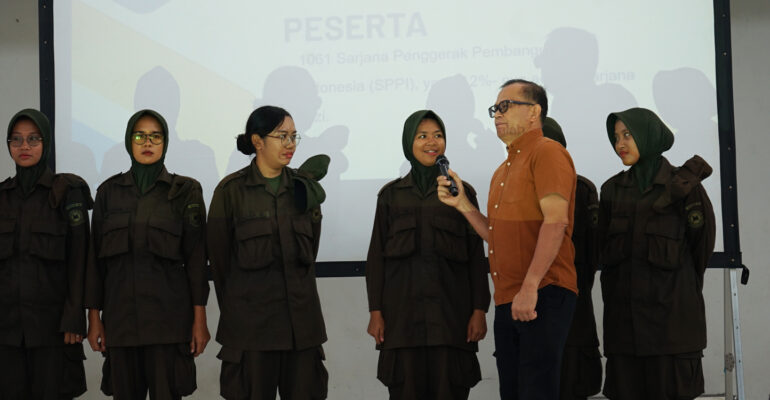IPB University Experts Give Nutrition Planning Technology Briefing to SPPI 2024 Agricultural Enrichment Program

Recently, the Directorate of Agromaritime Community Development (DPMA) of IPB University held an Agricultural Enrichment Program with a focus on the Nutrition Cluster as part of the Bachelor of Indonesian Development Movers (SPPI) Batch 2 activities.
This activity presented Prof Hardinsyah, an IPB University expert in the field of nutrition who presented material on the preparation of daily community nutrition based on the Ideal Food Pattern Standard (SPPI) guidelines.
In this activity, Prof Hardinsyah provided in-depth insights into the process of preparing a daily menu that includes energy and nutrient needs, calculating nutritional content, and planning food needs in accordance with community conditions. He also explained about harvest age and average food production, which are the basis for planning a balanced and nutritious menu.
In addition, Prof Hardinsyah explained the important steps in nutrition planning, including the division of the target categories of the Diverse, Nutritious and Balanced Menu (MBG). “This material aims to provide a practical understanding of how to optimize community nutrition planning, as well as effective and efficient ways of preparing menus that can support community health and welfare,” he said.
“Through this activity, participants can understand how important nutrition planning is based on the actual needs of the community. By paying attention to a balanced food composition and taking into account the conditions of local food production, we can plan menus that are not only nutritious but also sustainable,” said Prof Hardinsyah.
He continued, this program provides a great opportunity to apply nutrition theory in real practice. He hopes the participants can implement the knowledge gained in an effort to improve community nutrition in various regions and become agents of change in improving the quality of nutrition in the community.
“This program provides an opportunity for participants to better understand the importance of nutrition planning based on local needs and conditions, as well as utilizing food production data in sustainable nutrition planning,” said Prof Hardinsyah. (*/Lp) (IAAS/RUM)



